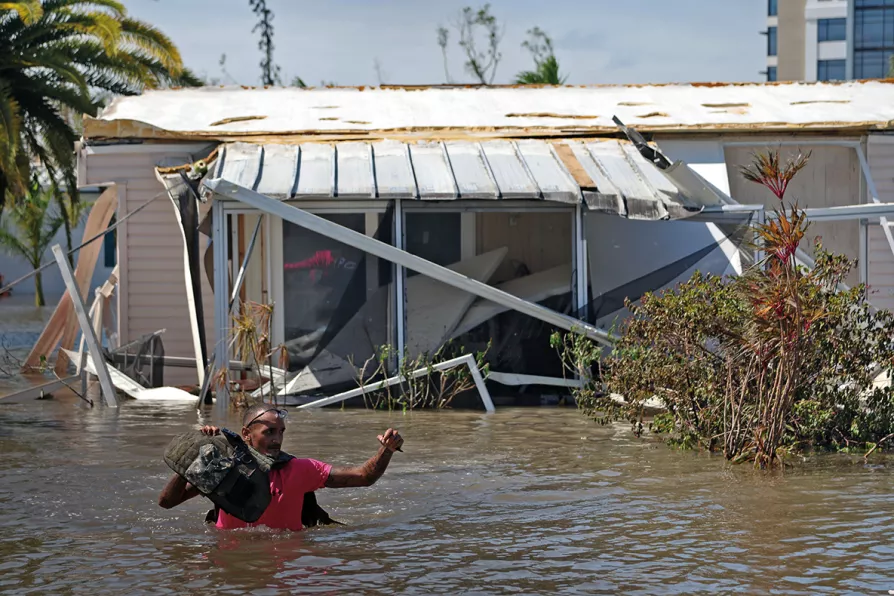The language of humiliation is a step towards a second civil war, argues RAMZY BAROUD

 STRANDED: A resident wades through floodwaters in a flooded mobile home community near Fort Myers, Florida, September 29
STRANDED: A resident wades through floodwaters in a flooded mobile home community near Fort Myers, Florida, September 29
OVER 100 people are dead in Florida after Hurricane Ian ripped through the state, making landfall on September 28 as a Category 4 storm.
Over 202,000 Florida homes and businesses are still without power. The hurricane caused damage that US President Joe Biden claimed could rank as “the worst in the nation’s history,” with economic damage that could cost up to $75 billion — possibly among the five costliest storms in US history.
The death toll combined with the imagery of utter destruction paints a harrowing picture of the fate of Floridians after this storm. Cities such as Fort Myers were levelled, Sanibel Island completely cut off from the mainland, and 3.4 million homes and businesses experienced power outages across several states and a boil water notice was issued in the hardest hit county.

Hurricanes might have natural causes but the tragedy that follows is entirely human-made and a consequence of capitalist greed, asserts ROGER McKENZIE

While ordinary Americans were suffering in the wake of 2005’s deadly hurricane, the Bush administration was more concerned with maintaining its anti-Cuba stance than with saving lives, writes MANOLO DE LOS SANTOS

The ongoing floods in Pakistan could have been largely prevented, writes ABDUL RAHMAN










